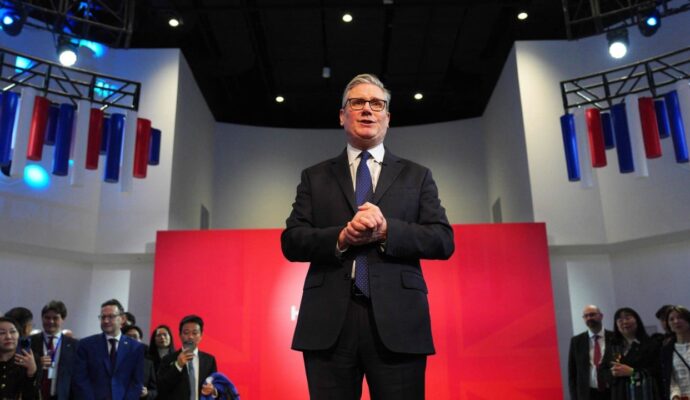The study comes amid a lively debate about how the European Union should engage with China.
In Brussels, policymakers are putting together an economic security strategy, to be proposed on June 20, which will recommend ways of weaning the European economy off Beijing in areas where dependencies are mounting. It will advance the bloc’s first moves in screening companies’ investments into China, a controversial move that has riled businesses and some member states who want to continue trading freely.
In some quarters, the China debate has been boiled down to a straight up shoot-out between French President Emmanuel Macron – an advocate of engagement – and European Commission President Ursula von der Leyen, the architect of Brussels’ “de-risking” campaign.
In April, speaking to media on a flight from Beijing to Guangzhou, Macron said the EU should avoid becoming a “vassal” of the United States on China, especially urging distance concerning any potential military defence of Taiwan.
The remarks sparked a huge discussion in Europe, with Macron roundly criticised by some other EU leaders and a host of US lawmakers. “Some Western leaders dream of cooperation with everyone, with Russia and with some powers in the Far East,” Polish Prime Minister Mateusz Morawiecki said at the time.

